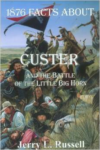Description
On a cool, autumn day in October 1902, a group of Indians, known as Cupenos, noticed a white man approaching their village of Agua Caliente, located in a beautiful mountain valley in southern California. The unexpected guest was a farmer, a federal employee assigned to teach Native Americans how to raise crops. The stranger apparently came to assist the Cupenos and other local Indians in preparing to leave their homelands and remove to the Pala Reservation, over fifty miles away. On the following day, Cupenos, along with their Luiseno and Kumeyaay neighbors, gathered together to discuss the stranger’s demands. One person stood up and declared with firm resolve, We do not need a farmer to help us, we are not savages. Others agreed. The assembly of Indians then invited the white man to depart. In We Are Not Savages, Joel R. Hyer traces the history of the Cupenos, Luisenos, and Kumeyaays, recounting how the federal government ultimately forced more than one hundred of their numbers to the Pala Reservation. He also considers the diverse and complex methods the U.S. government used to Americanise these Indians. Yet, this is much more than a study in federal Indian policy. reservation records, government documents, interviews, and other sources, the author demonstrates the strategies the Cupenos used to respond to the pressures and problems created by outsiders. Hyer’s sympathetic account offers new insight into such issues as Indian health and education, acculturation, and cultural persistence. This is a remarkable tale of survival, resistance, and accommodation.






Reviews
There are no reviews yet.